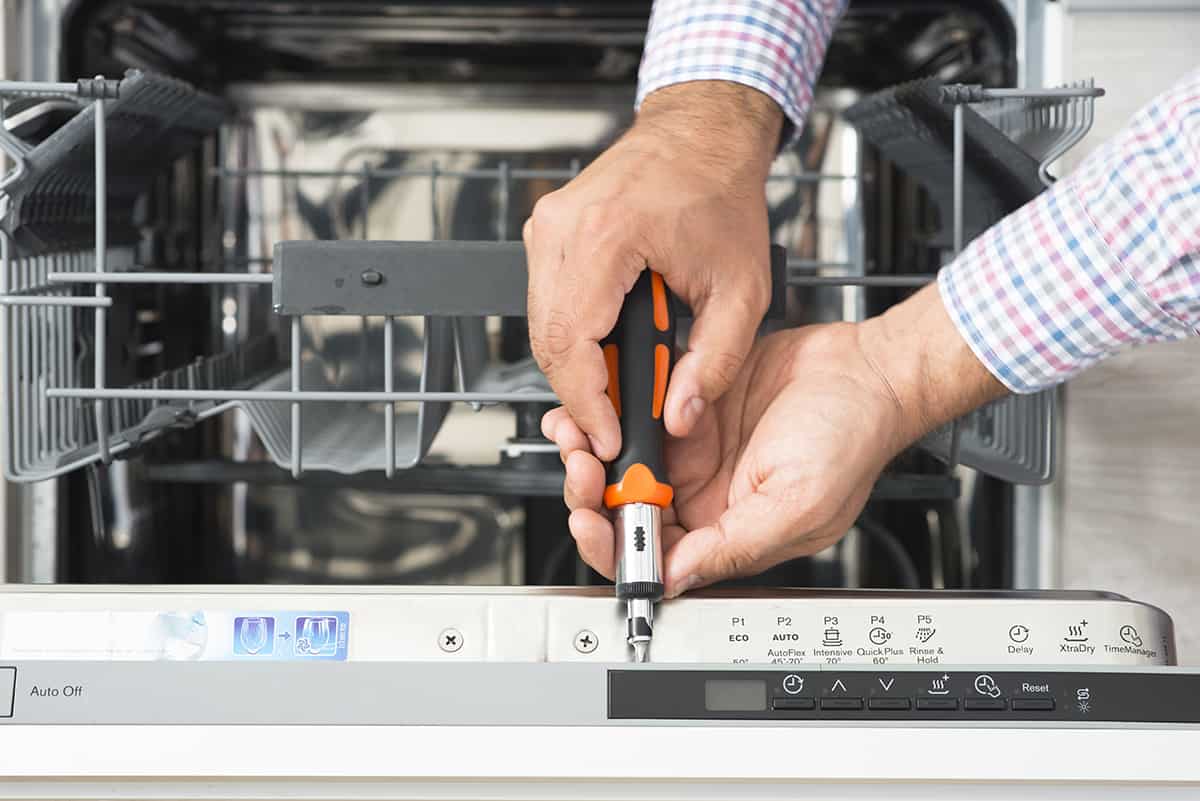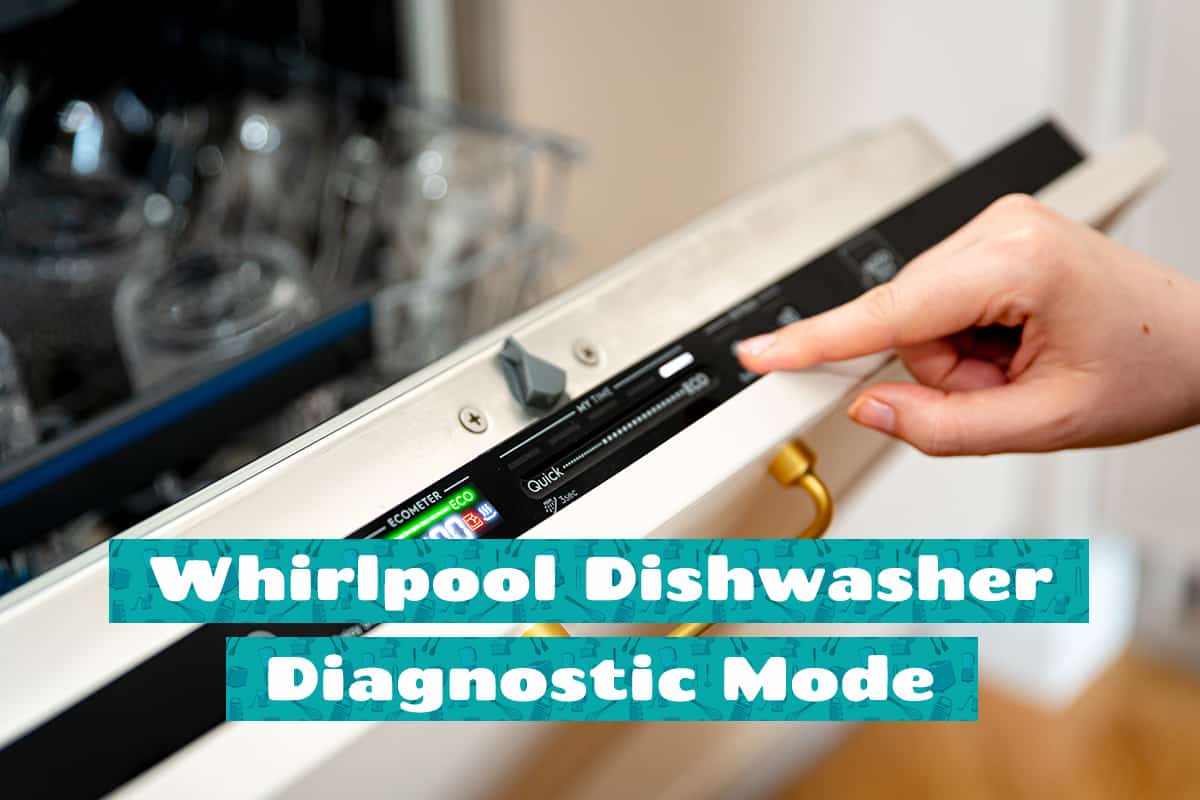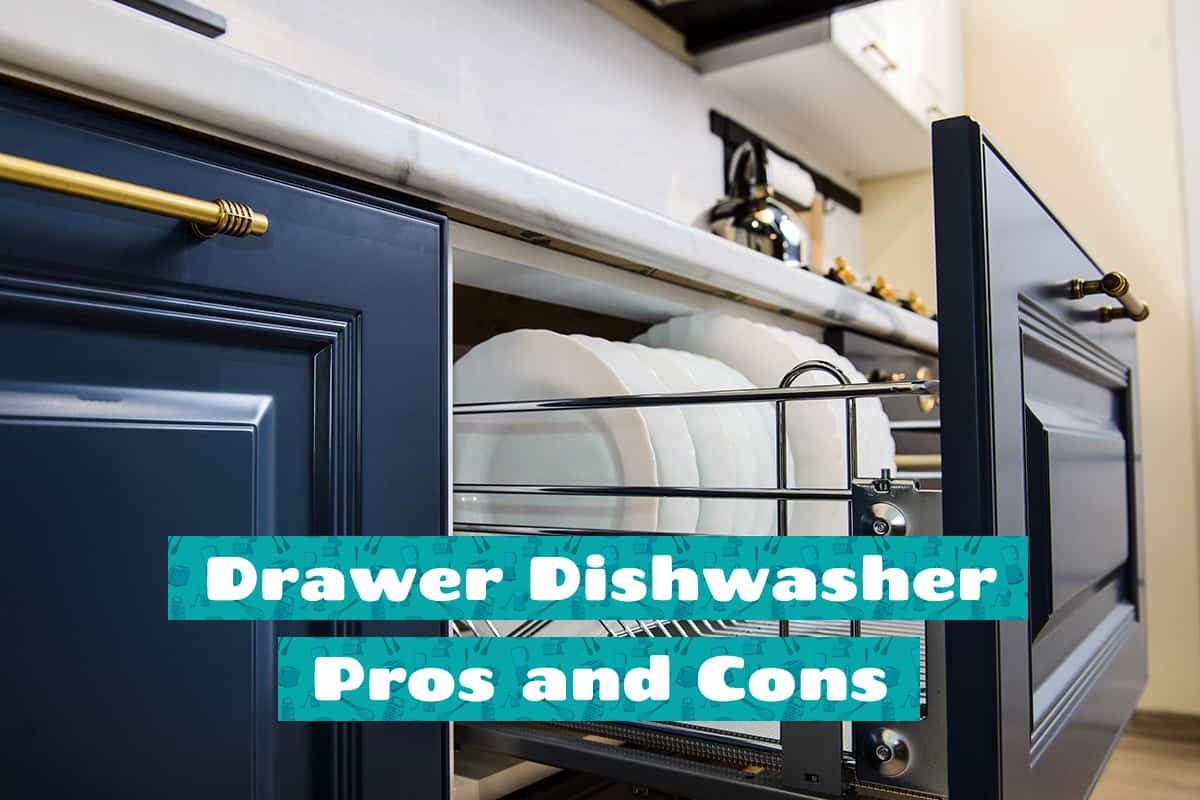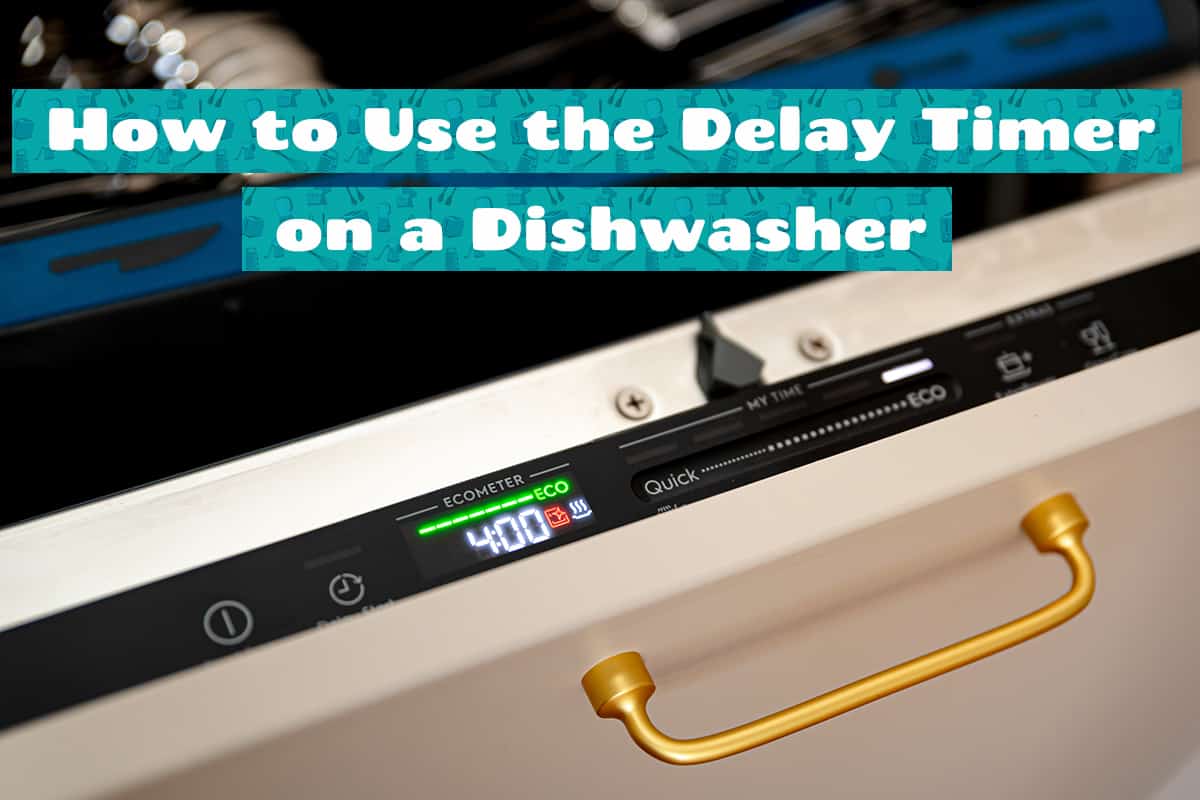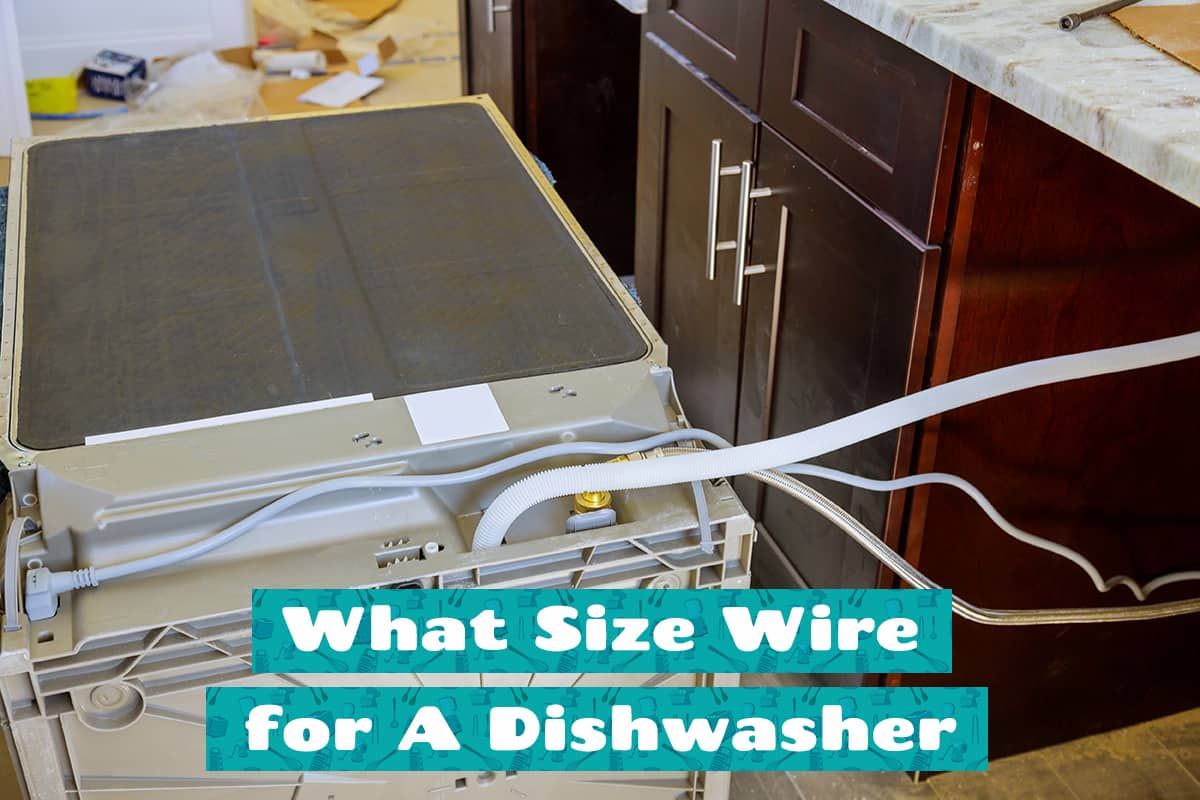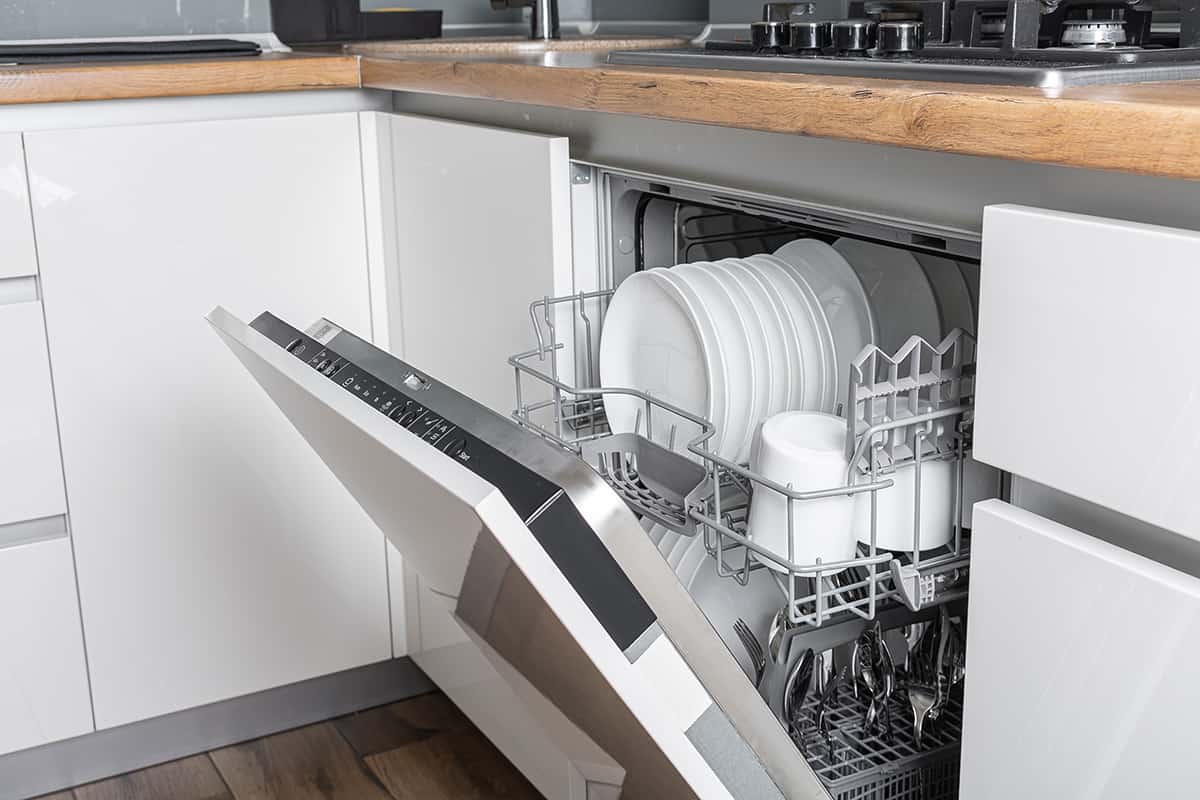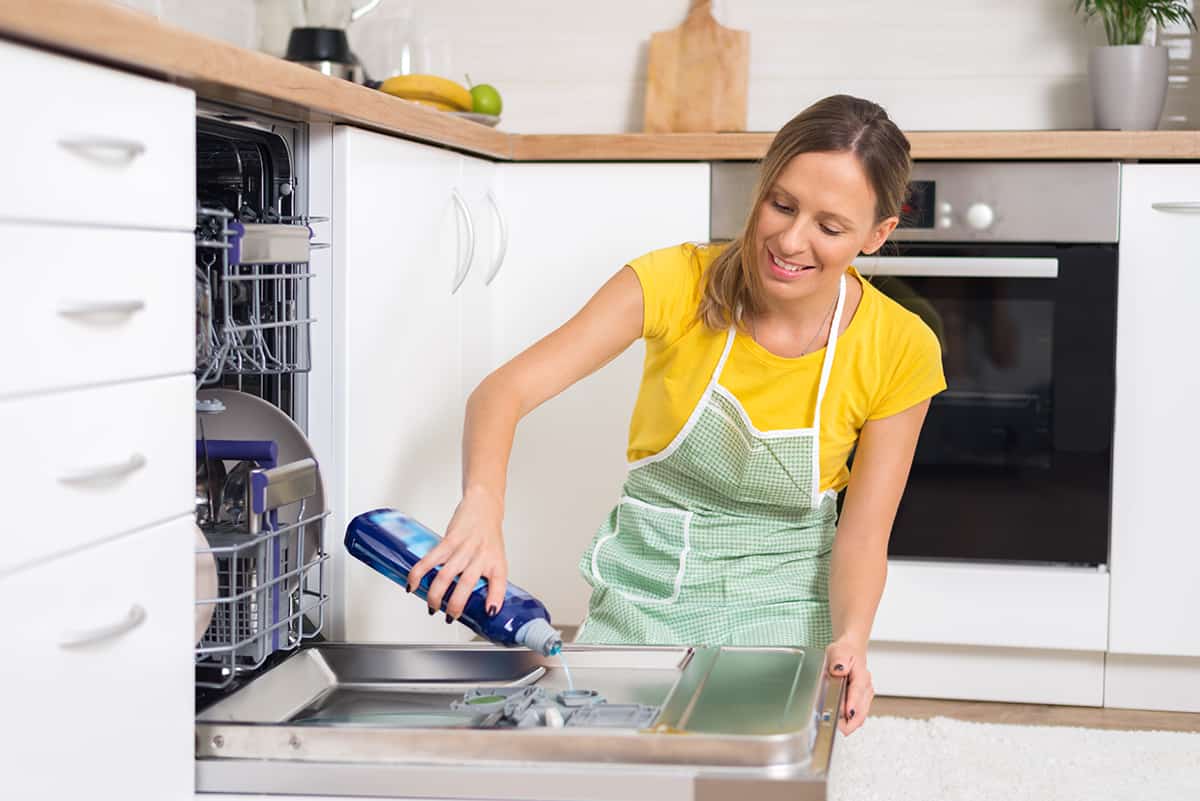Dishwashers, the handy kitchen helpers, are known for their humming and gurgling sounds while they work to get your dishes clean. But what if those familiar sounds turn into something different? Maybe a loud bang, a high-pitched squeal, or a disturbing grinding noise? Sounds like these might have you worried that something’s not quite right with your dishwasher.
Abnormal dishwasher noises include:
- Humming—Could indicate a motor issue.
- Rattling—Often due to improperly loaded dishes or loose components.
- Squealing—May suggest pump or bearing problems.
- Grinding—Caused by food debris in the pump or a worn-out motor.
- Banging—Result of water hammering or a slamming detergent door.
This article will guide you through various types of dishwasher noises, their possible causes, how to troubleshoot them, and preventive measures to keep your dishwasher running smoothly and quietly.
Normal Sounds of a Dishwasher
When you start a dishwashing cycle, the machine begins by filling with water. This process creates a whooshing or gurgling sound, which is the sound of water being drawn from your home’s plumbing system and entering the dishwasher. This sound is entirely normal and expected.
After the dishwasher fills up with water, the cleaning phase starts. During this phase, the dishwasher’s motor powers the spray arms that shoot water onto the dishes. The spray arms rotate, and the force of the water being expelled from them creates a humming or whirring noise. This sound is also perfectly normal and a good indication that your dishwasher is doing its job.
The sound will continue throughout the cleaning phase, changing slightly in tone and volume as the dishwasher adjusts the water pressure to clean different types of items.
Finally, at the end of the cycle, the dishwasher drains the dirty water. This process creates a louder whooshing or gurgling sound, similar to the filling sound but with a higher volume. This sound indicates that the dishwasher is pumping the water out and back into your home’s plumbing system.
Common Types of Dishwasher Noises and Their Causes
We’ve discussed the normal sounds a dishwasher makes. But what about the unusual noises? Let’s explore some common abnormal sounds and what they might mean for your dishwasher.
1. Humming or Whirring
The first type of noise we’ll look at is a humming or whirring sound. While a quiet hum is normal during operation, a loud or constant hum might be a sign of a problem.
- Normal operation sounds—If you hear a soft humming or whirring noise, this is usually just the dishwasher’s motor doing its job. It’s powering the spray arms to clean your dishes. No need to worry here.
- Motor malfunction—If the hum becomes loud or constant, this could indicate a problem with the motor. The dishwasher motor might be working harder than normal, possibly due to a blockage or a worn-out part.
2. Rattling or Clanking
If you hear a rattling or clanking noise, it’s usually due to one of two things:
- Improper loading of dishes—If dishes are loosely placed or piled up, they might move around during the wash cycle, causing a rattling noise.
- Loose components—A loose component inside the dishwasher could also cause a rattling sound. It could be a spray arm, a rack part, or even a utensil that’s fallen from the basket.
3. Squealing or Squeaking
A squealing or squeaking noise can be quite alarming. Here’s what it might mean:
- Pump problems—The pump circulates water in the dishwasher. If it’s having issues, it might make a squealing sound.
- Bearing issues—If the bearings in the motor or the pump are wearing out, they could cause a squeaking noise. Bearings reduce friction between moving parts, and when they wear out, the parts might rub against each other, creating a squeaking sound.
4. Grinding or Growling
A grinding or growling noise can be quite disturbing. Here’s what might be causing it:
- Food debris in the pump—If food particles get caught in the pump, they might create a grinding noise as the pump operates.
- Worn-out motor—If the dishwasher’s motor is worn out or failing, it might make a growling sound.
5. Loud Banging or Thumping
Finally, if you hear a loud banging or thumping noise, it could be due to:
- Water hammering—This is a plumbing issue where water in the pipes stops or changes direction suddenly, causing a loud banging noise. It can happen when the dishwasher valve closes quickly.
- Detergent door slamming—If the detergent door is not opening smoothly, it might slam open during the cycle, causing a banging sound.
Troubleshooting Dishwasher Noises
If your dishwasher is making strange noises, it’s natural to want to figure out what’s going on. Let’s look at some steps you can take to troubleshoot the issues before calling a professional.
Basic Steps for Troubleshooting
- Check the dish load—Sometimes, the noise could be due to improperly loaded dishes. Make sure that dishes are securely placed and not touching each other. Also, check if any small items have fallen into the bottom of the dishwasher.
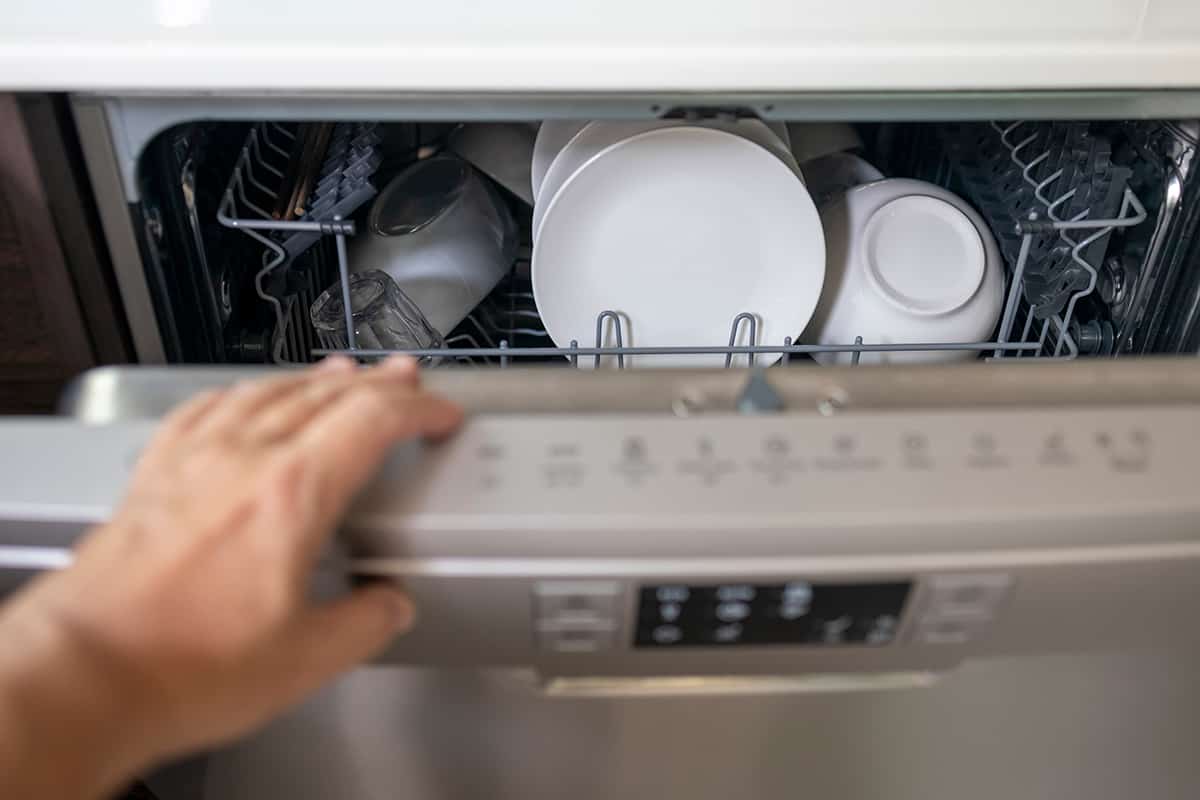
- Inspect the spray arms—If the spray arms are hitting something, they could make noise. Check that they can spin freely and aren’t hitting any dishes.
- Clean the filter and pump—Food debris stuck in the filter or pump can cause a grinding noise. Try cleaning and cleaning these clogged parts of your dishwasher following the manufacturer’s instructions.
- Examine the detergent dispenser—If you hear a loud bang, it could be the detergent door slamming open. Check if the door opens smoothly.
- Investigate for loose components—A rattling noise could be due to loose components. Check for any loose parts, like the racks or spray arms, and secure them.
When to Seek Professional Help
While basic troubleshooting can fix some issues, there are times when you might need professional help:
- Motor issues—If the dishwasher motor is making a loud humming or growling noise, it’s best to call a professional. The motor is a complex component and trying to fix it yourself could cause more harm than good.
- Pump problems—If the pump is making a squealing noise, it could be due to a blockage or a failing pump motor. A professional can correctly diagnose and fix this issue.
- Water hammering—If you’re hearing a loud banging noise due to water hammering, you might need to install a water hammer arrestor. This is a job for a professional plumber.
- Worn-out bearings—If the bearings in the motor or pump are worn out, they will need to be replaced. This is a complex job and should be done by a professional.
- Persistent noise—If you’ve tried the basic troubleshooting steps and the noise persists, it’s time to call a professional. They have the skills and tools to correctly diagnose and fix the problem.
Preventive Maintenance to Minimize Dishwasher Noise
Keeping your dishwasher in top shape can help avoid many noise issues. Let’s look at some preventive maintenance tips to help your dishwasher run quietly and efficiently.
Regular Cleaning
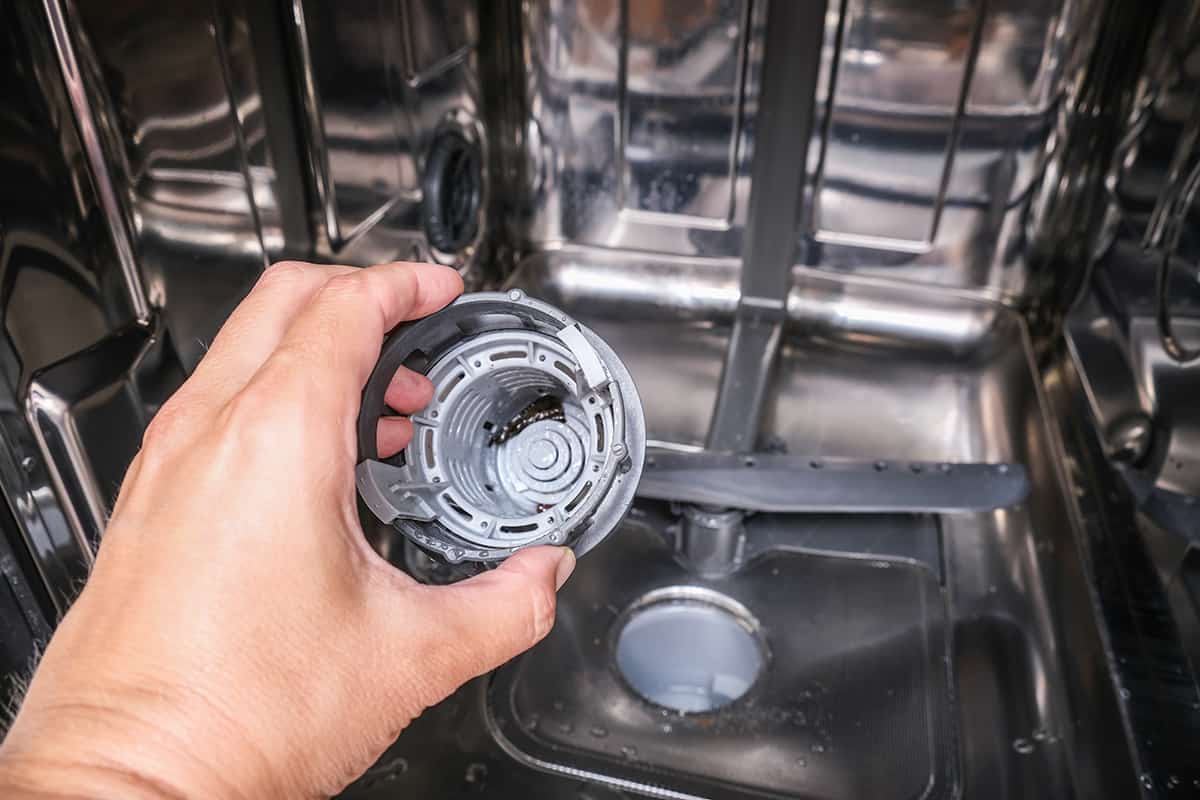
Keeping your dishwasher clean is the first step to minimizing noise:
- Clean the filter and pump regularly—Food debris in the filter or pump can cause a grinding noise. Clean these parts regularly, following the manufacturer’s instructions.
- Run a cleaning cycle—Every few months, run a cleaning cycle with a dishwasher cleaner. This helps remove any buildup of food particles, grease, or soap scum that could cause noise.
- Clean the spray arms—If the spray arms’ holes get clogged, they might not spin properly, causing noise. Clean them regularly to keep them working efficiently.
Correct Loading of Dishes
Loading the dishes correctly can prevent a lot of noise issues:
- Secure dishes—Make sure dishes are secure and not touching each other. This prevents them from clanging together and creating noise.
- Avoid overloading—Overloading the dishwasher can lead to noise as dishes can knock against each other. Always load the dishwasher according to the manufacturer’s guidelines.
- Place utensils correctly—Make sure small items like utensils are securely placed in the basket and can’t fall out.
Consider Sound-Reducing Accessories
If your dishwasher is inherently loud, you might want to consider sound-reducing accessories:
- Anti-vibration pads—Placing these under your dishwasher can help reduce vibration noise.
- Sound absorbing mats—These can be placed under the dishwasher to absorb some of the noise.
FAQs
1. Why Is My Dishwasher Louder Than Usual?
Your dishwasher might be louder than usual due to a few reasons. It could be because of dishes hitting each other during the wash, a loose part inside the dishwasher, or something more serious like a problem with the motor or pump. If the dishwasher decibel is persistently high, it’s best to get a professional to check it out.
2. How Can I Make My Dishwasher Quieter?
There are several ways to make your dishwasher quieter. First, make sure you’re loading the dishes properly so they don’t clatter against each other. Second, clean your dishwasher regularly, especially the filter and pump. If it’s still loud, consider using sound-reducing accessories like anti-vibration pads or sound-absorbing mats. Regular professional servicing can also help keep your dishwasher quiet.
3. Is It Normal for My Dishwasher to Make a Grinding Noise?
A soft humming or whirring noise is normal for a dishwasher. But if it’s making a grinding noise, it might be due to food particles stuck in the pump or a problem with the motor. Try cleaning the dishwasher filter and pump. If the grinding noise continues, it’s best to call a professional to check it out.
